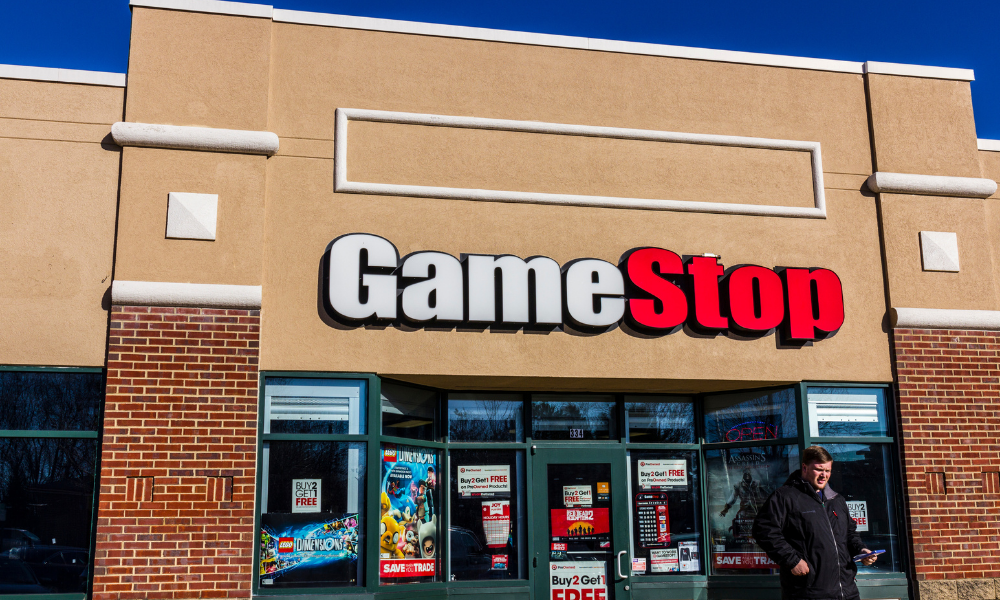Drama shows no sign of easing but advisor says it's the everyday investor he fears for

While sympathetic to the motivations of the maverick group of Reddit investors, one advisor has warned that their battle with Wall Street is unlikely to end well for them.
This week has seen a group of investors, who gather in the WallStreetBets forum, work together to send shares of GameStop and other companies soaring, with the apparent goal of earning millions of dollars of profit and causing billions on losses to hedge funds that were shorting the stocks. Portrayed as a David v Goliath face-off, other firms targeted included BlackBerry Ltd., Nokia Oyj and AMC Entertainment Holdings Inc.
However, brokerages choked off demand after a dizzying six-day rally by curbing trading on some of the apps used by retail investors, wiping out nearly $11 billion in market value in the process.
Frustrated, several federal lawsuits were filed yesterday demanding the likes of Robinhood reinstate trading of the shares. Legal experts, though, said brokerages have broad powers to block or restrict transactions and did not hold out much hope for the legal push.
Grant White, portfolio manager and investment advisor at Endeavour Wealth, iA Securities, told WP this is a dangerous situation because, ultimately, the ones who will be hurt most will be the retail investor. And while he admires the desire to push back against the man via this “rebel call”, he has deep concerns.
“At some point this goes bad,” he said. “It’s inevitable it’s going to go bad for a group of people and, truthfully, it’s probably going to end up being a group of retail investors that, unfortunately, get hurt the worst.
“You might have pushed some of the hedge funds out, you might even push some out of business, but for the most part, a lot of Wall Street traders or hedge fund managers are going to be ok. My concern is you have a lot of retail investors who don't understand necessarily the full ramifications of what they're doing, and what they're getting into. Some of those people could be left holding the bag but also losing their shirt in the process.”
The fear is the person who buys GameStop at $1,000 then watches it drop to $15. These are the risks of a free market, you could argue, but aside from the obvious danger to individuals, there are concerns about the integrity of the market. And while White is in favour of giving the same footin to the everyday investors as the Wall Street Goliaths, he doesn’t think financial education has kept pace with access.
He said: “That creates a lot of danger for the average everyday investor who's buying options and investing directly into companies they don't quite understand – and I think that’s very dangerous.”
White and his colleagues are “staying a million miles away” from this situation but they have been getting questions from clients about whether they should be interested and whether it’s an opportunity. Anyone with a long-term outlook, he said, should probably stay well clear and resist the FOMO.
He added: “The direct trading platforms need to take a responsibility. They have a fiduciary duty to their investors that are using their platform. I don't think that they should be able to stick their heads in the sand and say. ‘well, it’s a free platform, clients can do whatever they like’.
“[Retail investors] can get into a lot of trouble very quickly with certain options strategies. For that reason, there should be some sort of regulation on the direct trading platforms that requires them to do something in terms of education, or at least to caution to investors.
“I’m all in favour of opening up the platform and equaling the playing field. But we need to be responsible about this. Otherwise, we're effectively opening up the liquor cabinet to the kids.”
Meanwhile, investing and market cycles expert and the CEO of The Foundation for the Study of Cycles, Dr. Richard Smith told WP the regulators in the U.S. should be more involved than they have been to date, adding that while their amending of Rule 6060 to require disclosure of payment for order flow revenues between brokers and market makers was a good start, there should be even more transparency and disclosures like this.
Despite the frenzy of the past six days, Dr Smith believes the long-term ramifications for the markets won’t be as severe as people think.
He said: “Hopefully it will lead to some regulatory and congressional scrutiny … and some soul searching on Wall Street and in Silicon Valley. In the end, though, this was an action by a small group of traders and isn’t representative of the interests of the vast majority of so-called ‘retail investors’.”
The institutions, of course, are now fighting back by shutting down trading in excessively speculative instruments.
He added: “I suspect that a lot of institutions made a lot of money in this frenzy – even though a few hedge funds that were heavily short these stocks felt the pain. Wall Street will figure it out very quickly. The current pain won’t likely last long.”



